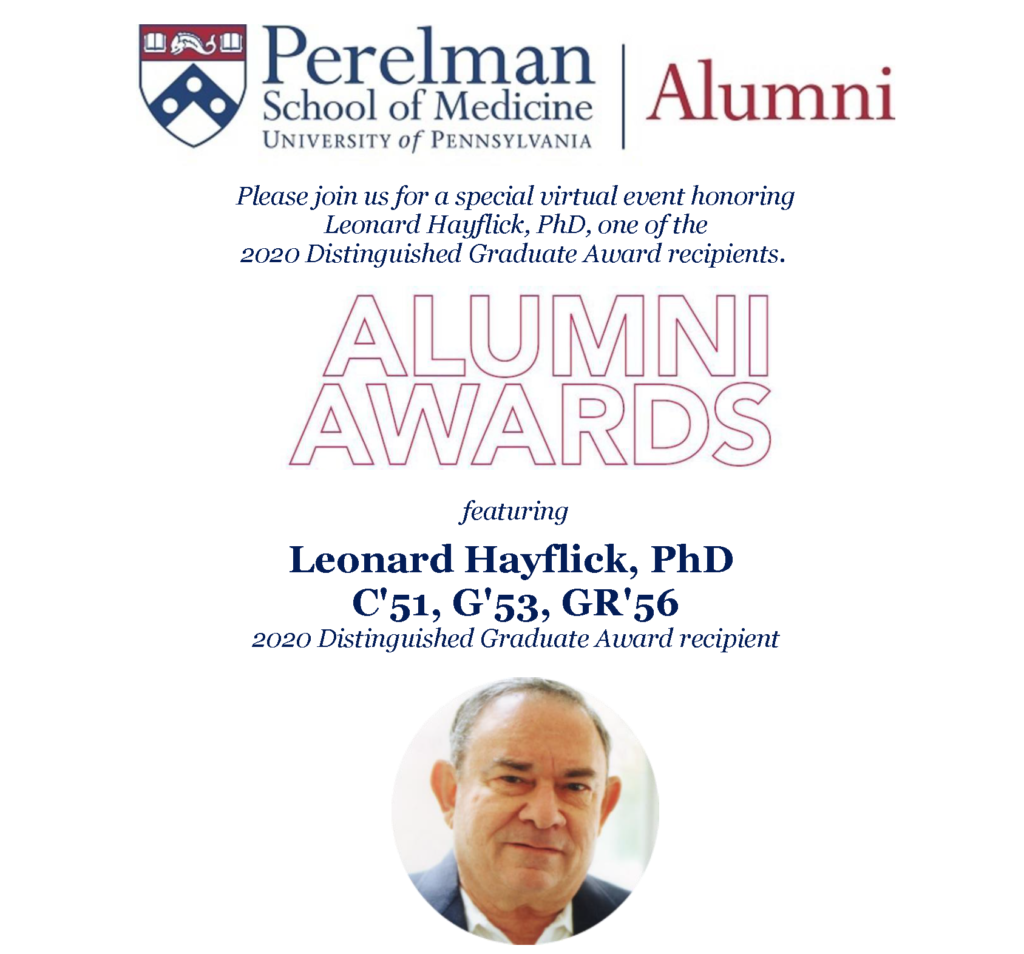Date: 03/01/2021
Time: 3:00 PM to 4:00 PM EST
Location: Virtual Event via BlueJeans Events
Registration: www.alumni.upenn.edu/dga2020hayflick
Leonard Hayflick, C’51, G’53, GR’56, a native Philadelphian, is currently Professor of Anatomy at the University of California, San Francisco. In 1962, as a member of the Wistar Institute and an assistant professor at the University of Pennsylvania Medical School, he discovered that cultured normal human cells had a limited ability to divide, overturning a 60-year-old dogma that all cells are potentially immortal. He interpreted his discovery to be aging at the cell level, which launched the modern era of aging research by redirecting its cause to intracellular events.
He also discovered that only cancer cells are immortal, which redirected research to how mortal normal human cells become immortal cancer cells.
Hayflick found that frozen normal human cells “remembered” their doubling level after thawing and discovered that the counting mechanism was located in the cells’ nucleus. The Nobel Prize was awarded to those who found the molecular mechanism for Hayflick’s phenomenological discoveries. Chromosome ends (telomeres) shorten at each cell division until their “Hayflick Limit” is reached, but cancer cell immortality was caused by an enzyme (telomerase) that synthesizes the molecules lost from their telomeres.
Hayflick also discovered that normal human cells replicated every human virus then known and developed the technology that enabled safer vaccines, thus benefiting more than one billion people. He invented an inverted microscope for cell culture work that is the father of all current inverted microscopes. It has been accessioned by the Smithsonian Institution along with packages of polio and rabies vaccines produced in his normal human cell strain WI-38.
Hayflick discovered that the cause of “walking pneumonia” was not a virus, as previously believed, but mycoplasmas, the smallest free living microorganisms known. He named the organism Mycoplasma pneumoniae that he grew on a unique medium and used worldwide.
Among Hayflick’s many honors is the John Scott Award from the City Council of Philadelphia, the oldest scientific award in the United States. It was established in 1816 to honor Benjamin Franklin.


Leave a Reply